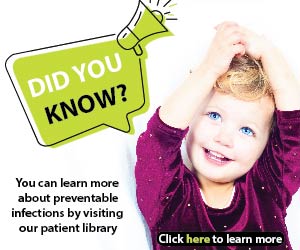HPV: Answers to your 4 W's

It is not every day that we get an opportunity to prevent cancer simply by getting vaccinated. Various strains of the sexually transmitted infection, human papilloma virus (HPV), are responsible for most cancers of the cervix, as well as cancers of the head and neck (eg, mouth and throat cancers), and anal cancer. HPV infection is also the cause of 90% of cases of anogenital warts.1 While the HPV vaccines have been available for several years, the release this past spring of a new vaccine that protects against 9 different strains of the infection further expands our prevention potential.2 Here are a few answers to your “four W” questions:
Why get vaccinated for HPV?
HPV is the most common sexually transmitted infection in Canada and worldwide – an estimated 75% of sexually active Canadian men and women develop at least one anogenital HPV infection in their lifetime.1 Because it typically produces no symptoms,3 the virus can be spread by men and women who are unaware that they have the infection.
The HPV vaccines are safe and effective, with over 90% of study participants developing antibodies against the vaccine's HPV types, and nearly 100% prevention of precancerous cervical, vaginal, and anal lesions over 5 years, in individuals who were vaccinated before exposure to any HPV infection.4
Who should be vaccinated?
Rates of HPV infection are highest in people in their mid to late teens through early 20s, however, the risk of contracting a genital HPV infection remains high in both men and women in their 40s, 50s, and 60.4
In addition to causing cervical cancer in women, HPV type 16 is currently believed to cause an estimated 70% to 80% of head and neck cancers; annual rates of these cancers have been rising, particularly in men younger than 50 without other risk factors (i.e. smoking). Research has found that 1 in 4 men over the age of 45 has a high-risk genital HPV infection.4 The Society of Obstetricians and Gynaecologists of Canada (SOGC) recommends HPV vaccination for all girls and women aged 9 to 45 and for boys and men aged 9 to 26.2
When to get vaccinated?
The vaccine is most effective when it is given before exposure to the virus. That is why it is recommended for boys and girls at around 12 years of age, before they become sexually active.4
What do the available vaccines protect against?
HPV-6 and HPV-11 cause ~90 per cent of all anogenital warts in males and females, while HPV-16 and HPV-18 cause ~70 per cent of all cervical cancers. HPV types 31, 33, 45, 52, and 58 account for 14% of HPV-related cancers in women and 5% in men.4
Three HPV vaccines are currently available in Canada: A bivalent vaccine that protects against cancer and pre-cancerous lesions of the cervix; a quadrivalent vaccine that protects against cancers and pre-cancers of the cervix, vagina, vulva, and anus, and against anogenital warts; and a 2nd generation 9-strain vaccine that provides the same protection as the quadrivalent vaccine, as well as protection against five additional types of HPV5 that are responsible for approximately one in five cases of cervical cancer.6
All three available HPV vaccines are given in 3 doses over a period of 6 months.1,2
Brought to you by Vaccines411.ca – know where to go for your vaccinations.
This information should not be used as a substitute for the medical care and advice of your doctor. There may be variations in treatment that your physician may recommend based on individual facts and circumstances.
Read more Vaccines411® Articles 
Sources
Note: the hyperlinks that direct to other sites are not continuously updated. It is possible that some links become untraceable over time. Thank you.
- Human Papillomavirus (HPV) and Men: Questions and Answers. Public Health Agency of Canada.
http://www.phac-aspc.gc.ca/std-mts/hpv-vph/hpv-vph-man-eng.php - Gardasil 9 HPV vaccine now available in Canada.
http://sogc.org/news_items/gardasil-9-hpv-vaccine-now-available-in-canada-2/ - CDC. HPV. Symptoms and Health Consequences.
http://www.cdc.gov/hpv/signs-symptoms.html - Caskey R. The Clinical Implications of HPV Infection CME/CE. Medscape Specialty. 06/26/2015.
http://www.medscape.org/viewarticle/842642_2 - Canadian Cancer Society. HPV vaccines.
http://www.cancer.ca/en/cancer-information/cancer-101/what-is-a-risk-factor/viruses-bacteria-and-other-infectious-agents/hpv-vaccines/?region=bc#ixzz3kdo3ZNF9 - CTV News. February 17, 2015. Health Canada approves new, more potent HPV vaccine.
http://www.ctvnews.ca/health/health-headlines/health-canada-approves-new-more-potent-hpv-vaccine-1.2240611



